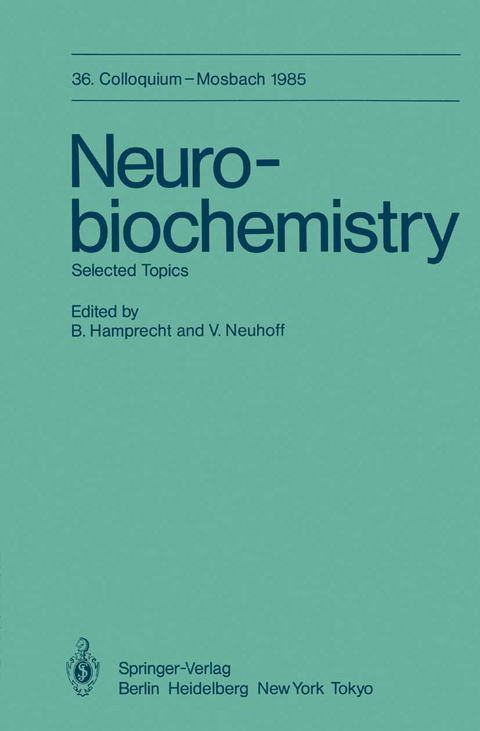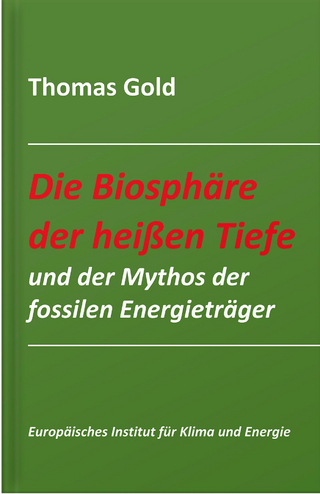
Neurobiochemistry
Springer Berlin (Verlag)
978-3-642-70942-5 (ISBN)
Gene Regulation by Nerve Growth Factor.- Implications of Proteases and Protease Inhibitors in Neurite Outgrowth.- Studies on the Cholinergic Differentiation Factor for Cultured Sympathetic Neurons.- Biological Properties of Brain-Derived Neurotrophic Factor (BDNF).- Multiple Molecular Forms of Acetylcholinesterase and Their Possible Role in the Degradation of Neurohormones.- Synthesis of Neurohypophyseal Hormones.- Degradation and Biological Inactivation of Neuropeptides.- Structure and Function of Cholinergic Synaptic Vesicles.- Catecholamine-Storing Vesicles: From Biosynthesis to Exo/Endocytosis.- Activation and Deactivation of the Cyclic Nucleotide Enzyme Cascade in Visual Rod Cells.- The Molecular Biology of Muscle and Brain Acetylcholine Receptors.- Laser-Flash Photoaffinity Labeling of Acetylcholine Receptors with Millisecond Time Resolution.- The Glycine Receptor.- The GABA Receptor/Benzodiazepine Complex in the Central Nervous System.- Myasthenia Gravis: State of the Art and Approaches to Immunotherapy.- Biochemistry of Gangliosidoses.- The Apamin-Sensitive Ca2+-Dependent K+ Channel. Molecular Properties, Differentiation, and Endogeneous Ligands in Mammalian Brain.- The Voltage-Sensitive Sodium Channel from Mammalian Skeletal Muscle.- Biochemistry and Physiology of Cardiac Calcium Channels.- Phosphorylation of Ion Channels: A Fundamental Regulatory Mechanism in the Control of Nerve Cell Activity.
| Erscheint lt. Verlag | 17.11.2011 |
|---|---|
| Reihe/Serie | Colloquium der Gesellschaft für Biologische Chemie in Mosbach Baden |
| Zusatzinfo | X, 213 p. |
| Verlagsort | Berlin |
| Sprache | englisch |
| Maße | 170 x 244 mm |
| Gewicht | 401 g |
| Themenwelt | Medizin / Pharmazie ► Studium |
| Naturwissenschaften ► Biologie ► Biochemie | |
| Naturwissenschaften ► Biologie ► Humanbiologie | |
| Naturwissenschaften ► Biologie ► Zellbiologie | |
| Schlagworte | Analytical Chemistry • biochemistry • Cell • Chemistry • natural product • nervous system • Neurobiology • neurochemistry • neurons • Neuroscience • tissue |
| ISBN-10 | 3-642-70942-7 / 3642709427 |
| ISBN-13 | 978-3-642-70942-5 / 9783642709425 |
| Zustand | Neuware |
| Haben Sie eine Frage zum Produkt? |
aus dem Bereich


